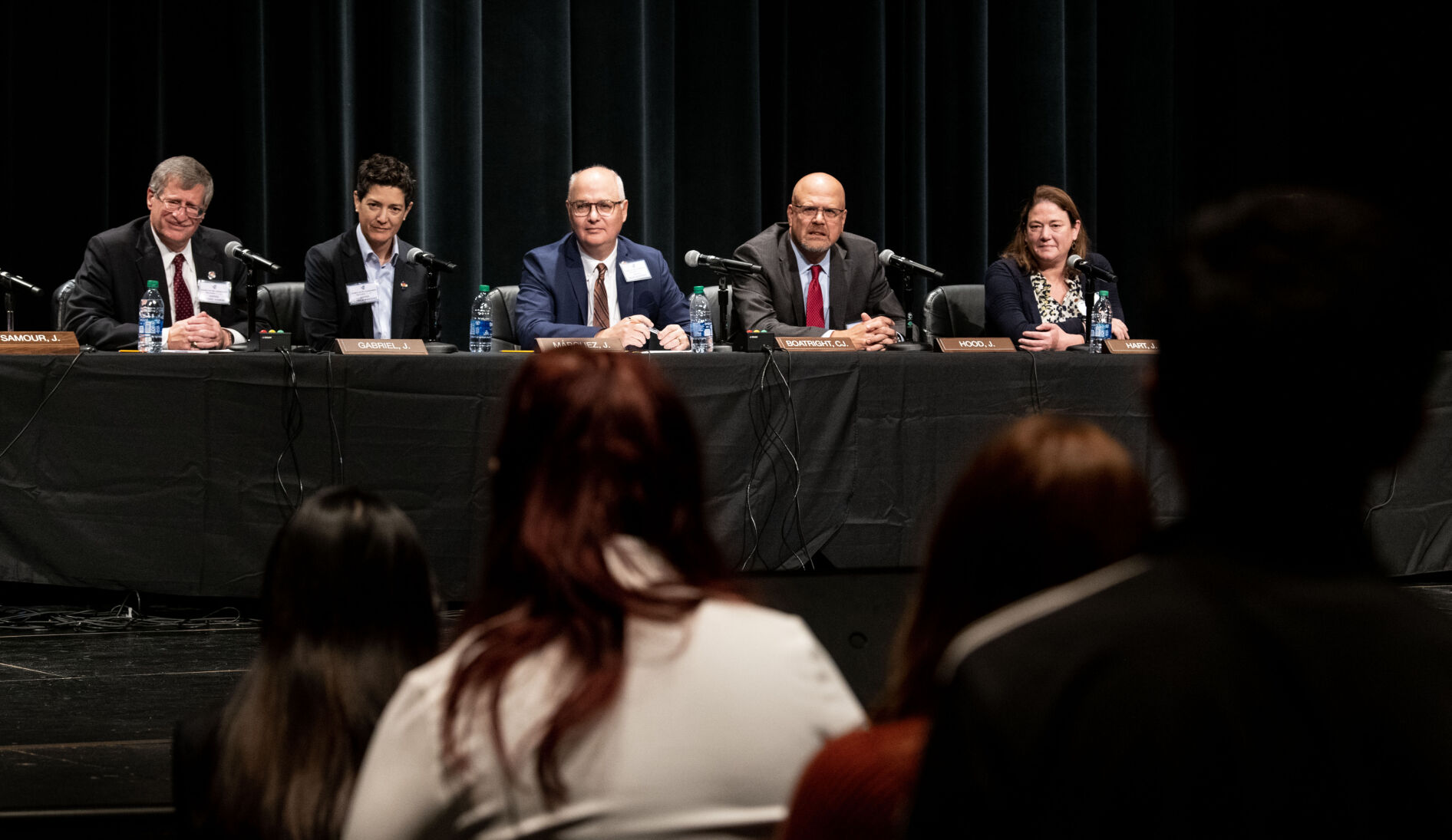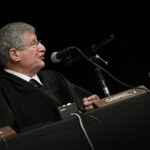Colorado Supreme Court to review safeguards against interrogations by child welfare workers

The Colorado Supreme Court announced on Monday that it will review two murder cases implicating a question the court has never answered: When a child welfare worker questions a suspect in custody, must they provide a Miranda warning first?
At least three of the court’s seven members need to consent to hear a case on appeal.
The justices narrowly turned down a third appeal involving Miranda warnings out of El Paso County, in which law enforcement proceeded to interrogate a suspect even after he asked if they “will get me someone to talk to right now. Like, a lawyer?”
Caseworker interrogations
Last year, the state’s Court of Appeals upheld the murder convictions of two men, both of whom spoke to a child welfare caseworker while under arrest. In each case, they were not informed of their constitutional rights to remain silent and to consult with an attorney first. Both men had their statements used at trial.
According to the prosecution, Adam Douglas Densmore killed and dismembered Ashley Mead, dumping her remains as he traveled from Colorado to Louisiana and back. A Boulder County jury convicted Densmore.
At the time police arrested him in Oklahoma, Densmore was with his and Mead’s child. Jessica Punches, a welfare worker, took custody of the child and learned the mother’s whereabouts were “unknown.”
Although police gave Densmore his Miranda warning and he invoked his right to counsel, Punches began questioning him in the jail about “where the mother was,” among other topics. Punches had a follow-up call as part of her work to create a plan for the child, and continued to ask about Mead.
During the conversations, Densmore admitted to hitting Mead. Punches shared the interviews with law enforcement in Colorado.
When police interrogate a suspect in custody without providing a Miranda warning, the normal protocol is to bar the prosecution from using any of the defendant’s statements at trial. However, Densmore’s trial judge concluded Punches was not acting as an “agent” of law enforcement and denied the defense’s request to suppress the interviews.
Last November, a three-judge panel of the Court of Appeals upheld that decision. Judge Stephanie Dunn acknowledged law enforcement is not permitted to circumvent a Miranda warning by enlisting third parties to interrogate suspects.
“To be sure, Punches was a government employee,” Dunn wrote. However, “there’s no evidence that law enforcement directed, controlled, or participated in Punches’ child welfare investigation. More specifically, Punches never consulted – or coordinated – with law enforcement about questions to ask Densmore.”
Densmore appealed to the state Supreme Court. He cited a 1968 decision of the U.S. Supreme Court that found the need to give a Miranda warning applied to a tax investigator, and he maintained the nature of Punches’ investigation similarly did not relieve her of the duty to read him his rights.
“What matters is that she was asking questions that she knew were likely to elicit incriminating evidence about a missing victim and Densmore’s assault of that victim,” wrote Deputy State Public Defender Lynn Noesner, arguing for the state Supreme Court to clarify that child welfare workers must always give a Miranda warning.

In a case out of Teller County with similar circumstances, a jury convicted Patrick Frazee of murdering Kelsey Berreth, who was also his child’s mother. Key testimony came from Frazee’s mistress, who Frazee enlisted to clean the crime scene and help dispose of Berreth’s body.
As with Densmore, a child welfare worker interrogated Frazee while he was jailed about the “timeline of events” surrounding Berreth’s killing. The trial judge declined to exclude his statements, made without a Miranda warning.
A different Court of Appeals panel determined Densmore, who was in jail, was not legally “in custody” and did not need to be informed of his rights. The panel cited longstanding precedent in Colorado that a person already in physical custody must be placed under “additional restrictions” to trigger a Miranda warning.
Frazee asked the Supreme Court to determine, like Densmore’s appeal, whether the caseworker needed to advise him of his rights before interrogating him. He also requested the justices evaluate whether the “additional restrictions” standard correctly applies to a detainee who has not yet been convicted, and whether recent U.S. Supreme Court precedent no longer supports Colorado’s interpretation of “custody.”
The Supreme Court agreed to address both issues.
The cases are Densmore v. People and Frazee v. People.
No ‘unambiguous request’
Colorado Springs police sought to interrogate Jacolby Hasan Williams on suspicion of sexually assaulting a 13-year-old girl. After reading Williams his Miranda rights, Detective Jason Gasper asked if Williams wished to speak with him.
“I was wondering, like, if we could get someone here to talk right now. Like, if that’s possible,” Williams said.
After Gasper asked what he meant, Williams elaborated: “You guys will get me someone to talk to right now. Like, a lawyer?”
“Not right now,” Gasper responded. “We don’t just call attorneys down here. What would happen is that we just proceed with the investigation without your side of the story. Which could be important, could not be important.”
Williams elected to speak to police. A jury convicted him and he received 16 years to life in prison.
The Court of Appeals concluded there was no need to exclude Williams’ statements from trial because it was unclear he actually invoked his right to counsel, which would normally halt an interrogation.
“The words spoken by Williams in this matter do not amount to an unambiguous request for counsel. Rather, Williams’ statements indicate that he wished to explore the possible timing and logistics of having counsel present,” wrote Judge Katharine E. Lum.
Gasper, in turn, simply stated as a “logistical matter” that Williams could not speak with an attorney “right now.”
Williams appealed to the Supreme Court, arguing Gasper misled him into talking despite Williams’ request for a lawyer. Justices Richard L. Gabriel and Maria E. Berkenkotter indicated they would have granted Williams’ appeal.
The case is Williams v. People.













